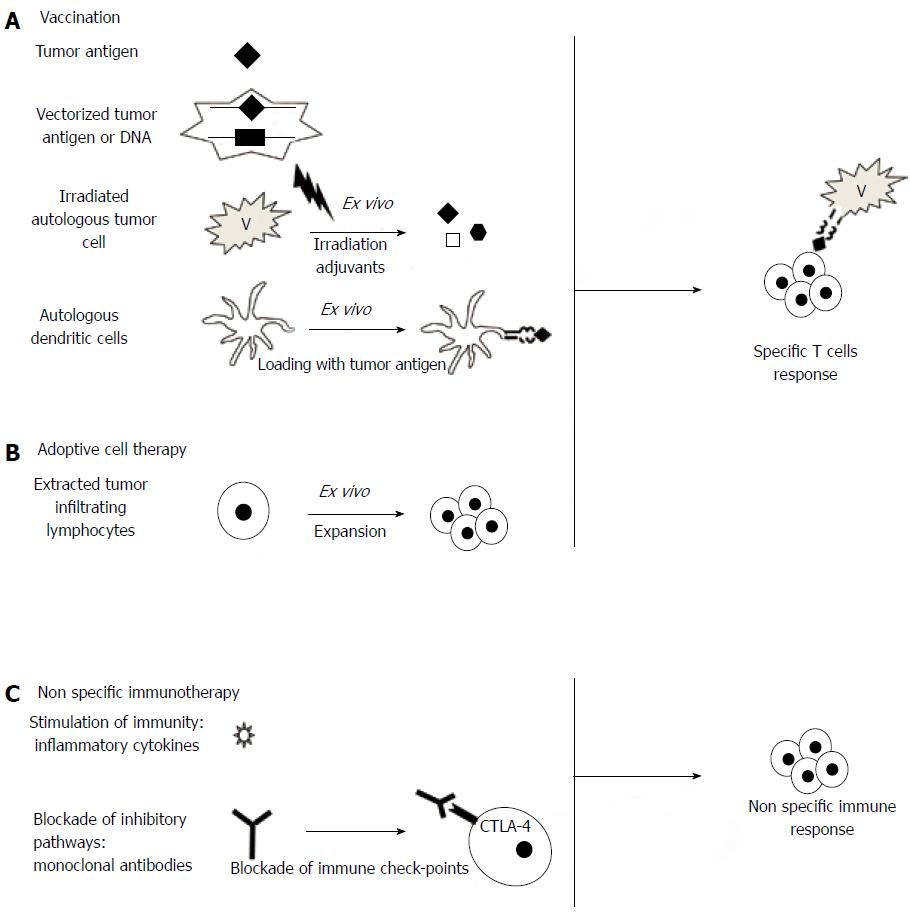Copyright
©2014 Baishideng Publishing Group Co.
World J Gastroenterol. Apr 14, 2014; 20(14): 3738-3750
Published online Apr 14, 2014. doi: 10.3748/wjg.v20.i14.3738
Published online Apr 14, 2014. doi: 10.3748/wjg.v20.i14.3738
Figure 2 Main current immunotherapy strategies.
A: The goal of vaccination is induction of a specific immunization against tumor antigens. The agent used for immunization can be either a single antigen, administered systemically or directly vectorized path, or a combination of antigens obtained from irradiated tumor cells. Finally, the antigen can be loaded ex vivo in autologous dendritic cells; B: Adoptive cell therapy is based on the ex vivo expansion of immune cells of the host in the presence of tumor cells, allowing the expansion of specific clones. This is mainly T cells but could also involve natural killer cells or a combination of immune cells; C: The non-specific stimulation of the immune system can be obtained by the administration of pro-inflammatory cytokines such as granulocyte-macrophage colony-stimulating factor, or by blocking inhibitory pathways. Ipilimumab is a monoclonal antibody blocking cytotoxic T lymphocyte-associated antigen 4 (CTLA-4).
- Citation: Pernot S, Terme M, Voron T, Colussi O, Marcheteau E, Tartour E, Taieb J. Colorectal cancer and immunity: What we know and perspectives. World J Gastroenterol 2014; 20(14): 3738-3750
- URL: https://www.wjgnet.com/1007-9327/full/v20/i14/3738.htm
- DOI: https://dx.doi.org/10.3748/wjg.v20.i14.3738









